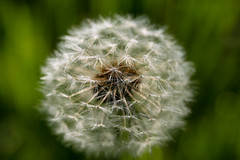I know, I know – I’m approximately six months late for spring allergy season. However, since this blog didn’t exist six months ago, perhaps you will forgive my timing 🙂
To be honest, I have found that here in Colorado, there seem to be various allergy seasons throughout the year. Most people are the most troubled in spring and/or late summer, but I see patients all year round for allergy-related problems.
Furthermore, many of the following tips are helpful for other problems that can create allergy-type responses in the eyes. So, without further adieu, here are some bits of knowledge related to eye allergies and how to manage them (as always, the following information cannot be considered an adequate replacement for proper eye care by a licensed professional):
1) Allergy symptoms primarily include redness, itching, and scratchiness or a foreign-body sensation (feels like something is in the eye). If you’re not experiencing at least some redness and itching, I would be surprised if your problem is allergic in nature.
2) Many eye allergy symptoms can be reduced or eliminated through conscientious eye washing. This may include cleaning your eyelids and lashes once or twice daily, as well as irrigating your eyes with artificial tears or eyewash. These non-medicated treatments can wash away potential allergens that may irritate your eyes and should be the first line of treatment even if medications will also be used. Cold compresses/washcloths can be very soothing as well and help to decrease inflammation.
3) Although it may be tempting to use an antihistamine pill to treat eye allergies, this may not be the best course of treatment. Not only will you get a higher concentration of medication in the desired location (the eye) with eye drops, but antihistamine pills are notorious for drying you out, including your eyes! If you are experiencing multiple other allergy symptoms – itchy throat, congestion, etc – then by all means go for a pill. Otherwise, consult your optometrist on what drops would be most appropriate to alleviate your eye problems.
4) The most commonly used eye drops for allergies are topical antihistamines (basically Claritin or Zyrtec for your eyes). Various excellent options are available both over-the-counter and by prescription, with prescription drops often working better with less doses. These drops not only help alleviate allergy symptoms, but they can also help prevent them from returning if used diligently.
5) If allergies get out of control and you develop a red, itchy, miserable eye; topical antihistamines may not be enough to get things under control. In this case, definitely see your optometrist, who can prescribe a short-term remedy to bring you back to where the everyday drops can carry the load!
Feel free to comment with any questions you may have regarding eye allergies, or to let us know what has worked well for you!

